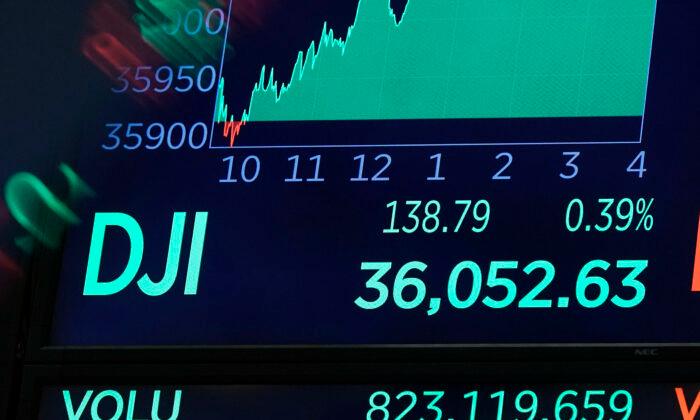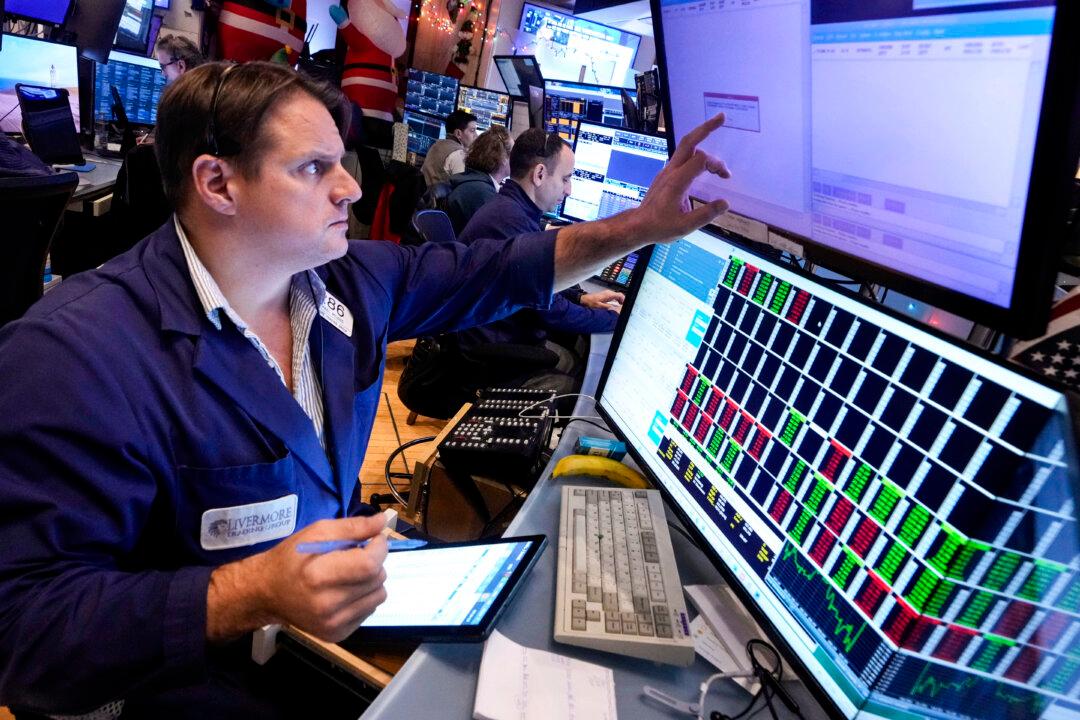The Federal Reserve finished its much-anticipated two-day November Federal Open Market Committee (FOMC) policy meeting on Nov. 3. The results were everything financial markets had anticipated, market strategists said.
Rate Hikes Coming Sooner to Fight Inflation?
The FOMC agreed to leave interest rates near zero as the economic recovery marches toward its objectives. But could it raise rates earlier than policymakers penciled in?
Powell conceded that inflation will last “well into next year,” adding that “if a response is called for, we will not hesitate.” By trimming its massive bond-buying campaign, Powell purported that this gives the Fed more flexibility to fight higher inflation.
“Inflation is elevated, largely reflecting factors that are expected to be transitory,” officials said in the statement. “Supply and demand imbalances related to the pandemic and the reopening of the economy have contributed to sizable price increases in some sectors.”
Despite increasing consumer and producer prices, the Fed insisted on using the term “transitory” in its statement.
Many market analysts expected the central bank to scratch out the word, suggesting the doves are still in charge, wrote Paul Ashworth, chief U.S. economist at Capital Economics.
“The Fed unveiled its QE taper today, as widely expected, but is still insisting that the surge in inflation is ‘largely’ transitory, which suggests the doves still have the upper hand,” he said in a note.
U.S. annual inflation is at 5.4 percent, the highest in 13 years. The producer price index (PPI) stands at an 11-year high of 8.6 percent. The Fed’s favorite inflation gauge, the personal consumption expenditures (PCE) price index, has advanced 4.4 percent, a 30-year high.
Powell revealed during the press conference that continued labor market improvements could justify rate increases later next year. This might enhance the focus on the October non-farm payrolls report. Economists are predicting 450,000 new jobs and an unemployment rate of 4.7 percent.
However, Wells Fargo Securities equity analysts don’t anticipate aggressive moves on rates.
“Therefore, addressing inflation will require time, not monetary tools. We believe this is the concept that the market is latching onto, and why the equity market is rallying,” the analysts said.
Will a Market Rout Occur?
The U.S. bond market was mostly in the green midweek, with the benchmark 10-year Treasury yield topping 1.6 percent. After the news conference, the leading indexes, including the Dow Jones Industrial Average and the S&P 500, finished the session at record highs for the second consecutive session.In the early part of the Nov. 4 trading session, equities were trading sideways, while the Treasurys were in a sea of red ink.
As the central bank begins to wind down its stimulus and relief efforts gradually, will bonds and equities face a downturn or maintain their upward trajectory since bottoming in March 2020?
Chris Iggo, chief investment officer for core investments at AXA Investment Managers, made the point in a note that monetary policymakers raising rates in a “controlled manner” without being aggressive can mitigate “the risk of a market rout.”
Since the balance sheet will continue to expand for several more months, Ipek Ozkardeskaya, a senior analyst at Swissquote, believes equities will sustain their record rally.
“The buying of bonds should come to an end sometime by mid-2022, but until that day, the Fed will continue expanding its balance sheet to record levels, and that will continue backing the inflation pressures, and the stock markets!” she stated in a research note.
“So we can comfortably expect to see the record rally in U.S. equities to extend, because a growing number of average households will be attracted to the stock markets as that’s going to be the only way to help them keeping up with inflation rising at a speed of more than 5% annually.”
What’s Next for Jerome Powell?
Fed Chair Powell’s four-year term is set to expire in February. President Joe Biden confirmed to reporters on Nov. 2 that his administration will announce a nominee to helm the central bank “fairly quickly,” without going into further detail.“I’ve given a lot of thought to it, and I’ve been meeting with my economic advisers on what the best choices are, and we got a lot of good choices, but I’m not going to speculate now,” he said.
Some market strategists believe the chief position in one of the most powerful institutions in the world could be used for political maneuvering. Philip Marey, a senior U.S. strategist at Rabobank in Utrecht, contended that Biden could choose to tap Brainard to “appease progressives in exchange for concessions to the moderates.”





